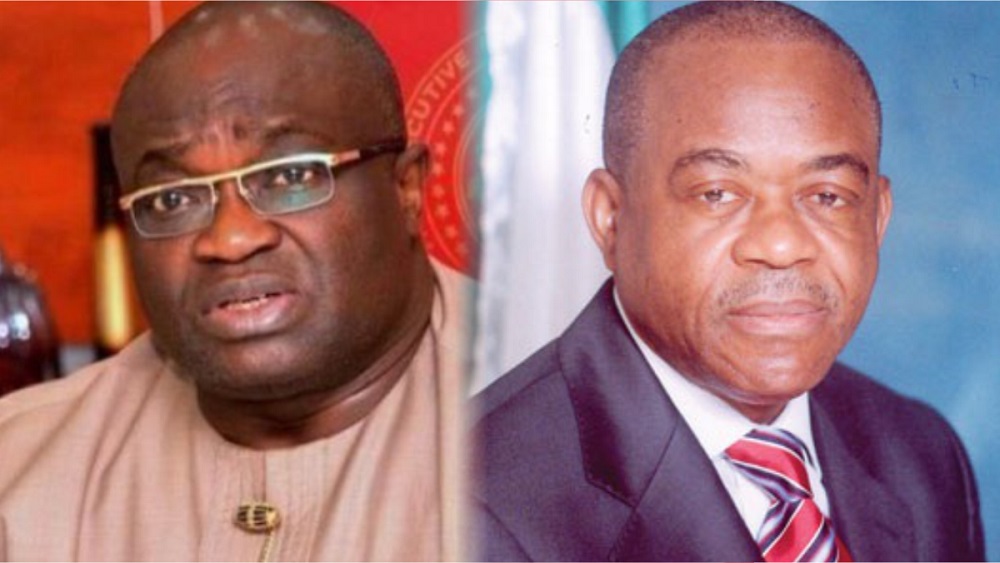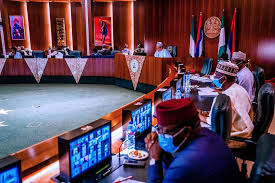Opinion
Governors are elected to pay salaries

It is not enough that the governor of Kaduna State woke up one morning to sack 4,000 workers. The government added insult to the injury by bragging that the governor was not elected to pay salaries alone. Apart from this being an unfortunate justification for the mass sack, it is also not an accurate statement. This poor justification is, therefore, both insensitive and inaccurate.
Let us deal with the inaccuracy first. Salary, in its broad understanding, is essentially a reward for work done for the benefit of others. It does not matter whether this work is routine office chores, a contract for a big project, or expert advisory (aka consulting) services. A big vendor (e.g. Julius Berger) will calculate the cost of delivering government contract work for the benefit of society and then add a margin that will be used to meet administrative costs, staff salaries, and dividends for investors. Those who sub-contract for the company will also add their margins for the same purpose – to get their reward for job done for the company for the benefit of the people. All of us, whether we work in the office or in the field, are, therefore, interested first and foremost in the compensation to be derived from the work we do for government as employees, vendors, contractors and consultants.

Without paying us the agreed compensation, work inevitably slows down or is halted completely. Certainly, the work will be shoddily executed as workers and contractors scramble to pinch funds they will use to meet the basic needs of those who do the actual work. If we think about it, a government that does not prioritize salary payments (in the form of compensation for work done, whether as a public servant or as a vendor) ends up as a failed administration. Whatever the Kaduna State governor considers as a primary responsibility of his government will come to a grinding halt, if there are no workers to execute them. There will be no workers to execute important government jobs when people and vendors are not hired with defined compensation packages to do them.
In well-organized workspaces, compensation does not end until the life of the worker. Compensation continues as pension when the worker retires. This is a mandatory task. Funnily enough, even politicians are keenly aware of this, which is why, after four or eight years of ‘serving’ the people, they connive with their houses of assembly to approve humongous pension packages for themselves! So, who is fooling whom? Every able human being works for compensation. Except for volunteer services, every work done, whether as a contract or a tenured job, is done by someone in search of compensation. Government workers, like contractors who execute capital projects, deserve their compensation. Therefore, paying workers should be prioritized and placed on the top of the list during the budgeting process because doing otherwise inevitably brings the wheels of government to a laborious stop.
Governors are primarily elected to manage rewards for work done for the benefit of the people.
We now turn to the sensitivity and sense of responsibility communicated in the governor’s press statement. Many people respect Gov. Nasir el-Rufa’i of Kaduna State a lot as an administrator, although too many others like his guts a lot less. Why do people admire the man? The Kaduna governor is a man of strong convictions who is not afraid to express and act on what he believes. He is also competent, focused and a policy wonk. As an administrator, he is not afraid to embark on reforms or take corrective actions when they are needed. Most of the time, those actions are warranted, some long overdue, and all in the overall public interest.
So, why do people hate his guts? The answer is simply because he takes no prisoners (his favorite expression when he served OBJ as minister). Quite often, his reforms and corrective actions are executed in a way that paints him as bad, wicked and impulsive. To make matters worse, he constantly gives the impression that he does not care what the public thinks about his policies, programmes, projects and actions – as long as he is convinced that he is on the right course. For someone who has so much assimilated the oyinbo way of doing things, how does he not see that this is a flaw in project management? Those he mimics will often accompany every project with a strategic communication plan designed to manage the expectations of key project stakeholders – in order to earn and sustain a good image for their projects and actions. The overarching goal of any project execution is to achieve a performance that not only demonstrates its utility to the people but is also seen and appreciated as such by the people. It is worrisome that this disregard for public opinion has become a character flaw that follows el-Rufa’i everywhere he goes. When he announced the sack of 4,000 civil servants and followed up with the quip that he was not elected to pay salaries only, I said to myself, “there he goes again.”
Yes, it may be the correct thing to do but why not show a little sympathy for 4,000 poor souls that are being thrown into the darkness of misery and want? The poor justification offered for dumping 4,000 public servants into the labour market (where there are no jobs) is one of the many examples that show that Governor el-Rufa’i has continued to carry a chip on his shoulder. This tendency nearly marred his tenure as FCT Minister. Recall that members of the National Assembly got so fed up with his obstinacy and arrogance that they attempted to ban him from holding public office for life! His self-inflicted enemies also dug deep to unearth what looked like nepotistic and grasping tendencies in FCT land administration. Were it not that he quickly jumped onto the Buhari bandwagon of 2015, el-Rufa’i would have been languishing in obscurity and irrelevance at this moment, a tragic ending for someone with his immense talents.
If you ask me, I will say that I agree with the principle behind the sack because the issue of dealing with redundancy in the public service has not only become necessary but is long overdue for redress in many states. For example, Kaduna claims to be spending over 90 per cent of its monthly federal allocation on salaries of public servants alone. This percentage, a spokesperson further said, “Does not include standing orders for overheads, funding security operations, running costs of schools and hospitals, and other overhead costs that the state has to bear for the machinery of government to run, for which the state government taps into IGR earnings.”
No state should carry this much burden as a tiny part of its recurrent expenditure. Thus, it makes sense to shed some of the excess staff baggage that Kaduna – and indeed all other states – accumulated over the years in the name of filling the unemployment gap. My problem is this: Although it does make sense to disengage redundant workers, but at what cost?
Over 4,000 Kaduna families have been thrown under the bus at a very difficult time in the history of the world. Let’s put this in context. The National Population Commission estimates the average nuclear family size in Kaduna at 5.3, which means that the state government has abruptly removed food from the table of at least 21,000 nuclear families. When extended families are thrown into the equation, the ripple effects of this action will affect almost 2.5 per cent of the population! Was this potential impact considered in the decision-making process? If yes, what contingencies, if any, were developed to ameliorate this huge negative impact? And why were they not communicated to gain public sympathy, rather than the insensitive claim that government does not exist to pay salaries only? If no, why was it not considered?
To be sure, there are creative options that Kaduna could have considered to manage the exit of this large number of its public service workforce. If the government is interested in collecting the over 30 legally approved taxes for the state and its 23 local governments, 4,000 persons could have been retrained to help the state improve on its meagre monthly tax harvest. With a projected adult population of 4.8 million and a monthly personal income tax collection of N496 million, it is assumed that each Kaduna State resident today contributes an average of N103 per month as personal income tax. Most residents are unable to pay tax because the state government has not expanded the economy enough to boost productivity and create real wealth.
Secondly, the governor must know that if Kaduna were to be a PLC, he as the chief executive would make every effort to find alternative employments, retain good staff on reduced salaries, and even sweeten the deal for those who may wish to voluntarily quit. At this moment, some state governments wanting to disengage workers are in a strong position to cut deals with them. In Kaduna State, there are ongoing programmes designed to benefit hundreds of thousands of citizens in the water, health, and agriculture sectors. Couldn’t the state have considered these workers as primary beneficiaries of some of the loans and grants from these programmes? I’m aware, for instance, that Kaduna is one of the six states currently benefiting from the Agro-Processing, Productivity Enhancement and Livelihood Improvement Support (APPEALS) Project, which targets 60,000 farmers in Kaduna alone.
In Enugu, one of the benefiting states, each beneficiary farmer is to get at least N1.8 million as a grant. This is just one example of the many projects that states could use to carry out a surgical operation on their bloated workforce. But will one be surprised that politicians will rather share this windfall among the party faithful, family members and cronies?


























